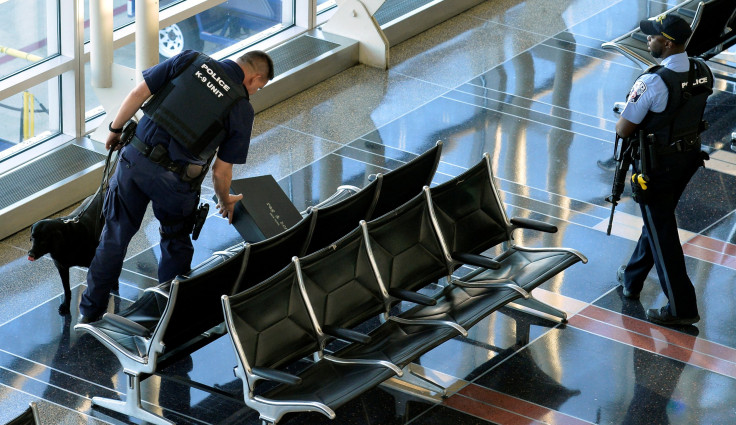Are Airports Safe? War In Middle East Could Move To Europe, US Transportation Hubs

Airports in the U.S. were especially vulnerable to attack from jihadist groups such as al Qaeda and the Islamic State, also known as ISIS, as a result of Washington's policy in the Middle East and Asia, a former top CIA official told an aviation summit Thursday.
The risk posed by al Qaeda has grown in recent years because the West shifted its military campaign toward fighting ISIS, according to former CIA Deputy Director Michael Morell. The U.S.' targeting of ISIS in Iraq, Syria and Libya has allowed rival jihadist group al Qaeda, which claimed responsibility for the infamous Sept. 11 attacks that killed nearly 3,000 people in New York, Washington and Pennsylvania, to regroup, said Morell, who served as acting director twice before becoming an intelligence analyst in 2013.
Meanwhile, the U.S.' military success against ISIS has reportedly caused tens of thousands of its militants to flee the group's disintegrating, so-called "caliphate" and potentially enter Western nations such as the U.S.
“The threat is actually going to get worse over the next several years,” Morell said while speaking at the 16th Annual Aviation Summit hosted by the Chamber of Commerce in Washington, adding that airports were “center of that target zone,” according to Bloomberg News.
After 9/11, by far the deadliest terror attack in modern history, the U.S. launched an invasion of Afghanistan to topple the country's Islamic fundamentalist government known as the Taliban, which was allied to al Qaeda. The U.S. also invaded Iraq in 2003, toppling President Saddam Hussein on the grounds that he had allegedly been developing weapons of mass destruction, allegations later proven false.
Al Qaeda's branch in Iraq became notorious for its violent, sectarian campaign against U.S. soldiers and the local Shiite community. Al Qaeda in Iraq eventually declared itself the Islamic State of Iraq, and, after expanding into Syria following the outbreak of the country's war in 2011, later became the Islamic State of Iraq and the Sham (ISIS) or Islamic State of the Iraq and the Levant (ISIL) in 2013.
ISIS has since eclipsed al Qaeda as a global terror threat, killing over 2,000 people in 143 attacks across the globe, including the deadliest acts of terrorism Western countries such as France and Belgium had ever seen. The U.S. began conducting airstrikes against the group's strongholds in Iraq in 2014 and in Syria in 2015. The Syrian civil war has also become a venue in which al Qaeda and ISIS, once allies, have declared war on one another. Syrian President Bashar Assad, along with Russian President Vladimir Putin and even President Donald Trump, have accused the U.S. of bolstering al Qaeda's resources by providing assistance to various Syrian rebel groups attempting to overthrow the Syrian government.
© Copyright IBTimes 2024. All rights reserved.






















